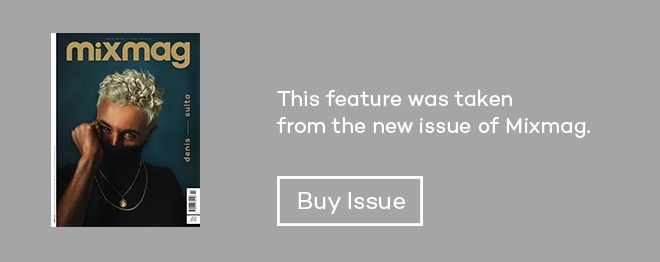 Cover stars
Cover stars
Denis Sulta escaped depression to live out his DJ dreams
An interview with Hector Barbour’s world-conquering, essential-mixing alter ego
It’s past midnight on a cool August night at Boomtown Fair in the Hampshire countryside, and the rain-sodden ground is drying out at the spectacular, immersive pop-up township of container dancefloors, dancer-filled walkways and a flame-belching main arena pumping out late-night drum ’n’ bass. It’s the last venue we’d expect – although perhaps not an inappropriate one – for a discussion of the work of the incredibly influential and prolific painter Francis Bacon.
Denis Sulta, just back from Way Out West in Gothenburg and off to Blijdorp festival in Rotterdam tomorrow, begins our interview talking eagerly about Bacon being his “biggest artistic inspiration” as he kicks around the backstage area of the Pagoda Plaza stage, waiting for his early morning headline slot at the peak of a self-chosen bill as part of his Sulta Selects series. Or:la – a regular at these fast-rising, bespoke parties – has just taken to the stage, and Sulta is excitedly explaining the concept behind his forthcoming Mixmag cover shoot. As he swipes through his own sketches and grabs of Bacon’s work on his phone, he talks about the duality in the artist’s work: of the darkness and edge of existential despair lurking just below the surface. “Bacon’s whole artistic inspiration is a struggle for identity. The dual personality, I guess, is not so much about having two personalities as such, but about exploring [another side to] his personality – his was his sexual identity, but with me it’s more about where my ego is, where my self is.
“The way Bacon painted himself, or any of his studies like Lucien Freud, was in a way that placed them in a totally different light. I would like to mask myself in a different light sometimes. I’m not always a great guy; after a drink or whatever this other guy can pop out, you know?”
These aren’t themes you’d expect of a man whose all-action live sets and ever-growing selection of diverse productions, on labels like Dixon Avenue Basement Jams and Numbers, and his own Sulta Selects – the latter a trio of EPs in tribute to Bacon’s famous triptychs – are rooted in the joyous energy of classic disco and upbeat house; an energy expertly showcased in his March Essential Mix. Yet they’re themes which Sulta knows a little about. A quarter-century into his life, the fast-rising, Berlin-based Scottish DJ, producer and party host has hit the perfect groove, yet the drive pushing him towards inevitable stardom has also pulled him out of some dark times. “A lot of this idea is based around how I’ve been feeling as an individual in this world, this industry, and watching a lot of people I know being sucked in by it and spat out again. It’s important to be aware of all the sides of yourself, and the two biggest sides to me are ‘Hector’ and ‘Denis’.”
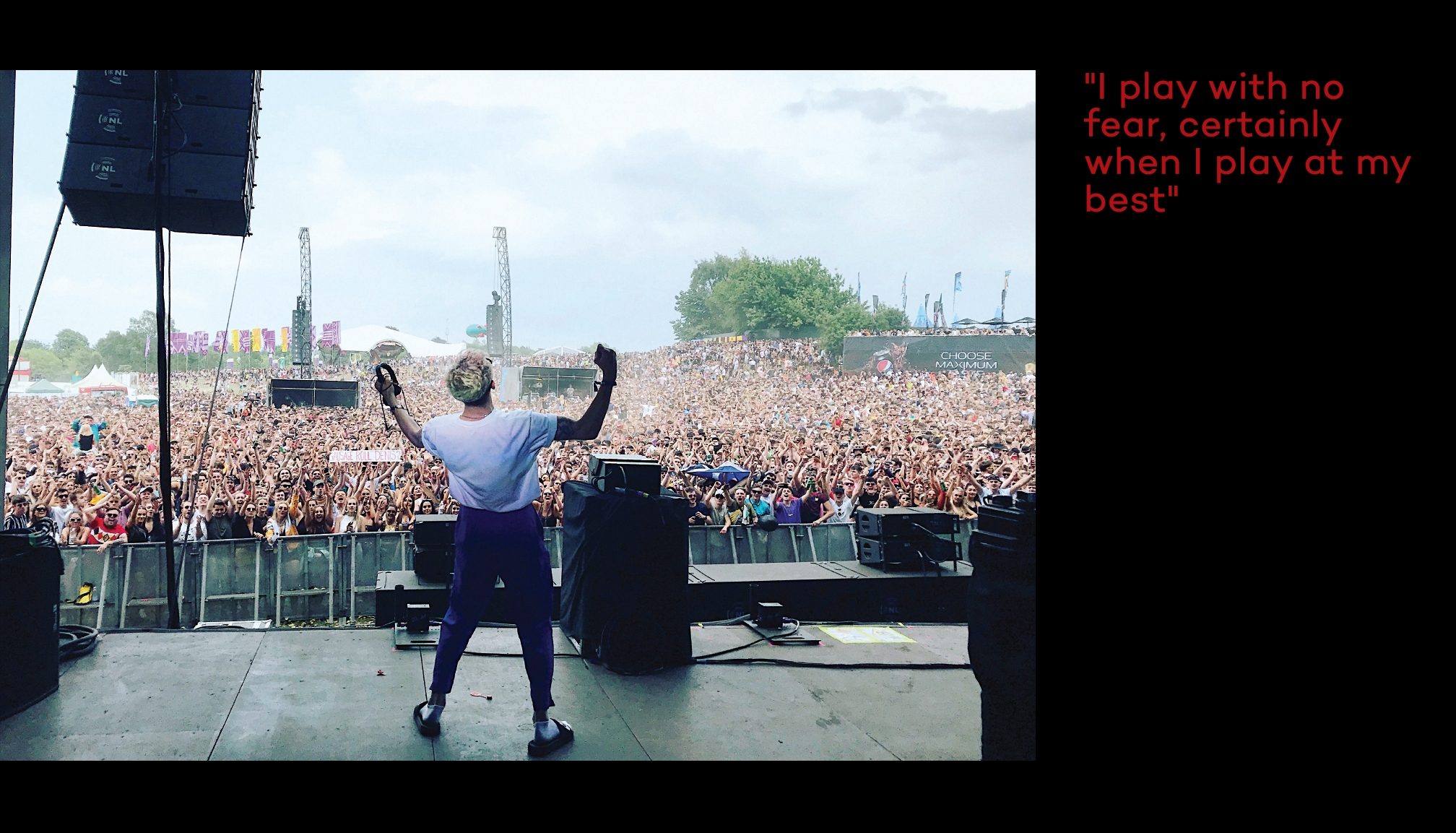
‘Denis Sulta’ is a fiction. The tall, articulate man with the white-blond hair sitting smoking and drinking green tea in a backstage yurt is Hector Barbour, born and raised in Anniesland in Glasgow’s West End. The area has long been known as a media enclave, and Barbour grew up rooted in that environment; his mother is the Scottish broadcaster, journalist, first female chair of Glasgow School of Art’s board of governors and presenter of 1980s pop show The Tube, Muriel Gray, while his father is television producer and director Hamish Barbour.
As we talk, Hector is visibly getting into the music filling the air around us; Honey Dijon – another of his selections – is now playing on stage just 25 metres or so away. More than once he interrupts himself with “Banger!” when he likes a mix.
He puts his early taste in music entirely down to his father. “He has two degrees in music, and he grew up with a very traditional idea of what music was,” says Hector fondly. “He’s a fantastic piano player; I’d hear him play things like ‘Birdland’ by Weather Report or ‘September’ by Earth, Wind & Fire; that jazzy, soulful stuff was big for him, and for me. Recently I’ve been playing ‘Let’s Go Round Again’ by Average White Band, which is one of his favourite songs, and an absolute belter.”
Disco, says Hector, was introduced to him by his father, and it’s the sound which most informs his style. Already, he has some absolute belters of his own; the third Sulta Selects EP, released earlier this year, boasts a trio of them, from the swirling strings, soaring vocals and liquid bass of the out-of-time Paradise Garage floorfiller ‘D_K_Y (But I Do)’ to the deep groove and spacey reverb of ‘L_M_Y_S_A’. “We still exchange forgotten disco classics, it’s great,” says Hector. “He loves key changes and the technicalities, while I don’t have any knowledge on that level. But we both like to think we know a good song.”
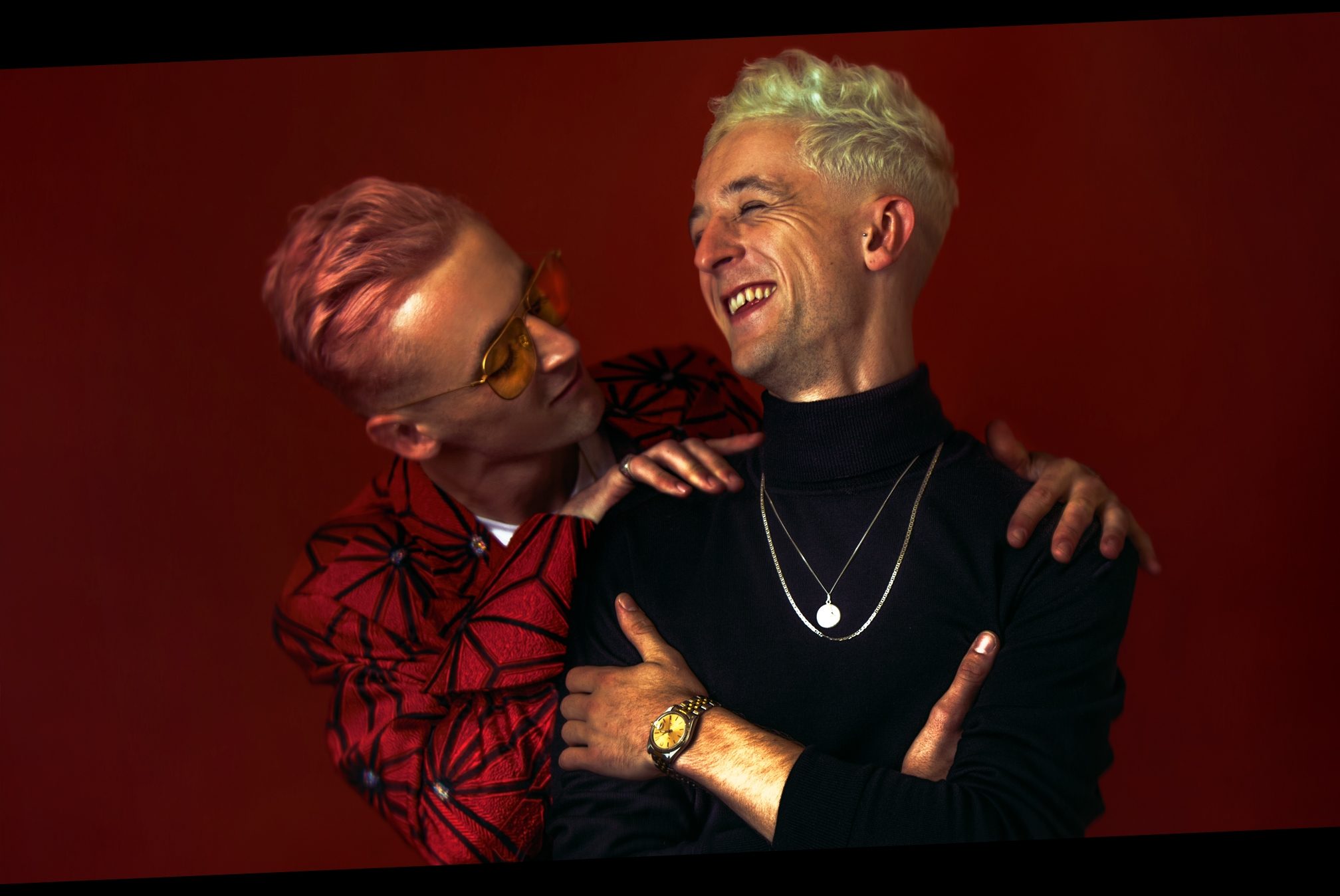
Hector’s earliest adventures in creating music also came at his father’s suggestion. “He always told me it was an interesting way to think,” he recalls. “He made the comparison between maths, language and music, between the way you learn all three.” Hector tried the viola first, then the trumpet. “I loved the tonality and the feel, and the very bold and beautiful aesthetic of the instrument,” he says. For two years in his early teens, the D_K_Y man was third horn in the National Youth Orchestra of Scotland.
Yet his first great ambition lay far from music. “I was a budding freestyle skier and I wanted to be a professional,” he recalls. “One of my peers, Cal Sandieson – who is now a very successful and amazing freestyle skier – and I had a fantastic, brotherly relationship: competitive but also supportive. I did a ski season with him in the Alps and met his father Wilba, who gave me a lot of support.”
It was that meeting that eventually diverted Hector into electronic music. Like a generation of Glasgow DJs and producers he views Wilba Sandieson as a mentor and almost a second father figure, for Sandieson is one of the owners of the city’s Rubadub, one of the finest record stores, gear shops and distributors in the country. Wilba took to Hector, giving the then hip hop-obsessive teen a weekend job in the shop, and Hector invested in a Numark Mixtrack Pro and a downloaded copy of “a compilation called something like ‘40 Club Anthems’”.
“That’s how I figured out mixing,” he remembers, recalling the development of skills immortalised by Boiler Room (see this now classic example from a Dixon Avenue Basement Jams party). “It was easy, so I got bored of it fast. I was probably about eighteen, and it wasn’t until later that I bought a pair of turntables and started buying records. The first one was Tiger & Woods’ ‘Gin Nation’, and I remember it so well, I literally played it ten times in the shop that day. Then records like ‘Edge Off’ by Redinho and more low-slung, disco-house records. The more you learn about something, the more you realise you know nothing about it – and at that point I realised, ‘Oh shit, there’s so much for me to explore here’.”
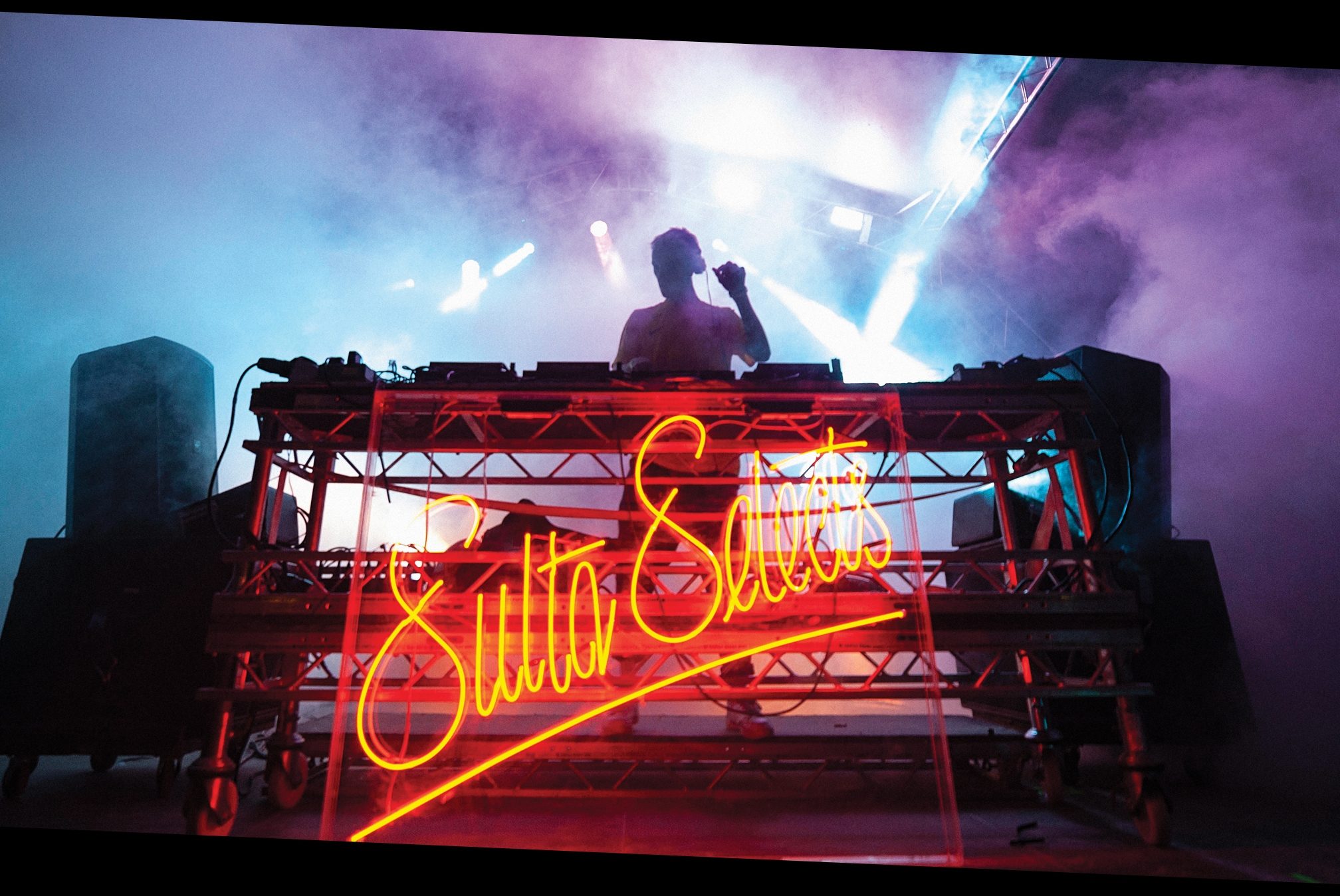
He buzzed off Underground Resistance (“they had an effect on me, but not as much as they had on other people”) and most Happy Trax reissues, which is where he discovered Mad Mike. “I remember asking Wilba if I could get them on loan before I got paid, because I needed these records in my life. The big, amazing keys, the uplifting spirit… it was one of those times when the memory not only has an aesthetic and a sonic part, but a physical element as well. I remember what the warehouse smelled like that day, what I had for lunch – the memory’s ingrained in me. That’s how I got into obsessively loving music. Mad Mike, who I had the pleasure of meeting and working with at Red Bull Music Academy in Montreal, is some kind of alien. He’s just incredible.”
Hector started promoting. He co-ran a Thursday party at now-defunct Glasgow venue Chambre 69, which played hip hop and “booty bootleg stuff”. It just about broke even, because the DJs were selling shots of vodka at £2 a pop from behind the booth. “The venue was raging at us,” he remembers, unsurprisingly.
For a year and a half Barbour studied electronic engineering and then product design engineering at Edinburgh’s Napier University, coming back to Glasgow at the weekends for Rubadub. The course didn’t work out, but while he was in Edinburgh he met promoter Tom Ketley and was instrumental in setting up the latter’s FLY Club; he’s still involved, earlier this year bringing a triumphant Sulta Selects show to the FLY Open Air mini-festival at Hopetoun House, a stately home on the outskirts of Edinburgh.
By this time, he was also producing in earnest: “Four-four club tracks with no real end game, just the fact they worked at a house night. I made hip hop for a long time under the alias Conrad Hart, who was the main character in a game that me and my mother used to play on the Sega Megadrive, but it didn’t click. I wanted to be able to do everything; I didn’t just want to be in one niche. I had a hip hop stage, a really dark, experimental techno stage, and I guess now a Denis Sulta stage.”
For anyone who has seen his Sulta show, the character appears to be an expression of pure joy, a sharp-suited playboy whose sets bring the fire. An hour after we speak, his stage-headlining slot at Boomtown is a revelation, a ridiculously upbeat collision of disco, soul and house played to around 3,500 people. Ticker-tape cannons blast, a pair of dancers grind and high-kick on the stage, and Denis is an angular whirlwind, an enthusiastic advert for loving what you do, made evident by the archiving of his Boiler Room sets. Yet this joyfulness is the polar opposite of Sulta’s origins..
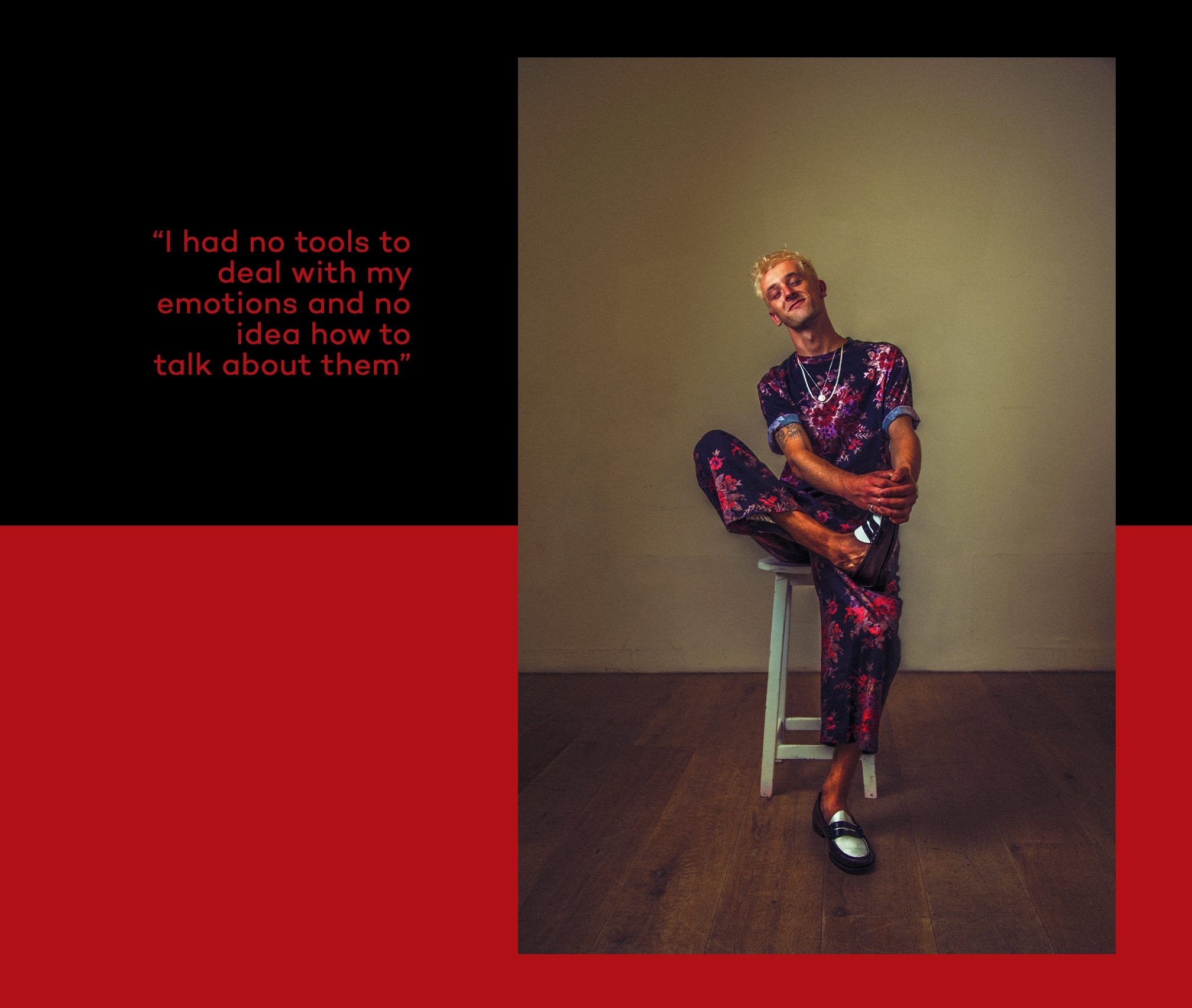
“I had a long period after I left university where I slipped into a big depression,” Hector told us before the show. “I wasn’t very happy with what I was doing, I was unsure, I was frustrated, and at the same time I had this sense of entitlement: I felt that my problems were so important, and I resented my upbringing – all the young, middle-class insecurities. I was taking a lot of drugs and spending every penny I had on staying alive, with no tools to deal with my emotions and no idea how to talk about them. My mother and father were nothing but supportive, but as a young man you feel it’s just you against the world. I was in an institution for people with mental health issues… it’s a period of my life that I don’t tend to talk about.”
As Hector has it, a simple act of friendship turned things around. “I had an epiphany on my twenty-first birthday, I kid you not. A good friend took me to the theatre to see a show, and something clicked; maybe it was that sense that someone cared for me, but I just knew everything didn’t have to be shit. Tools I’ve learned like CBT [cognitive behavioural therapy, a talking therapy that helps people change the way they think and process their thoughts and emotions] have bettered me, have had a huge part to play in where my mental state is at now. At the time I decided to be the opposite of what I used to be. I was making music as Atlus – it was angry, it was pissed off, and ‘Atlus’ backwards is ‘Sulta’. I needed something to go with it; ‘Denis’ sprung to mind, and that had a ring. I wanted to make music with a different sonic aesthetic, and a character to accompany it.”
At the time, being Denis allowed Hector to unleash a lot of what he felt he had bottled up. “He’s much more the egotistical side, although it’s calmed down a lot now. I think initially it was a big ego trip to turn into that guy, to go off into a world that was all about me. And it was easy to get lost in that, where I thought the world was about me – or Denis – and the people I made dance. But nowadays I find it much easier to slip in and out of it.
“He’s a good chap,” Hector continues. “He means well. He’s a bit flamboyant, he goes for it, but he’s a good laugh once you get to know him. Fairly recently, though, I’ve started to realise that he is me. For so long I’ve fought against the idea that I may be allowed to be myself, to have the opportunity to enjoy myself and make others happy – but we should all be entitled to these things. The only difference with Denis now is that I feel more at ease with who he is, who I am and where we’re going, essentially.”
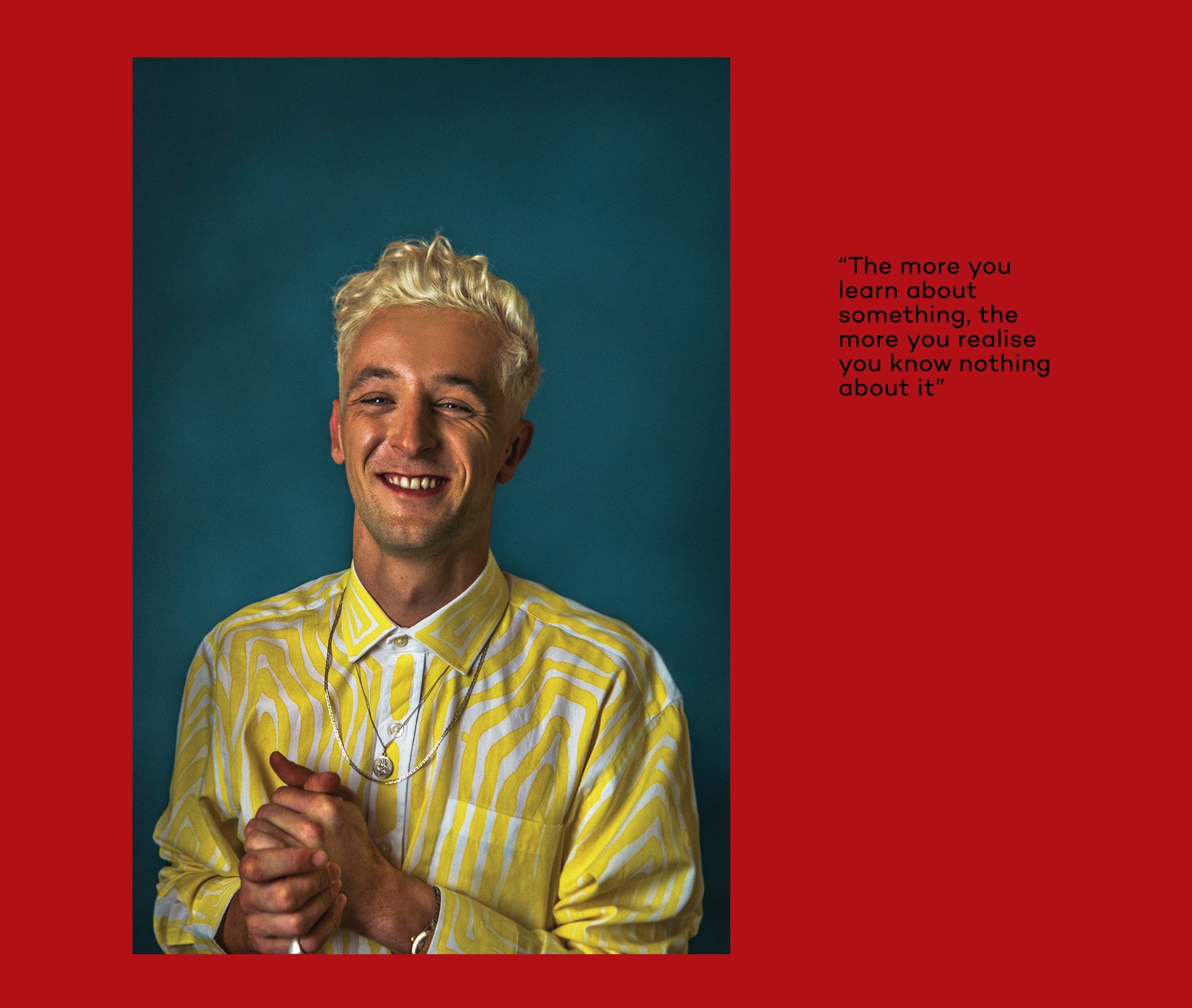
Things changed dramatically, he says, when he moved to Berlin two years ago. A week after he arrived he played Panorama Bar, a watershed moment, and he says he’s grown more in the time since he arrived than in his previous 23 years. He credits his partner Lauren, his manager Sarah at Locket Management, and understanding agents for keeping him straight. “How does self-care work, doing this [ie DJing]?” he asks rhetorically. “By wanting to look after yourself, and understanding that you matter. If you’re in this world surrounded by the wrong people, then you’ll make the same mistakes others have. I was in that bubble of absolute egoism, but despite how much effort I put in now – ‘constantly exhausted but never tired’ is how I feel – I can genuinely say I feel happy and healthy. I surround myself with people who I care for and who make me feel cared for; I eat; I go to sleep – that makes a fucking big difference. I can’t stress how much the support network I have gets me through.”
Thinking back to his set at FLY Open Air earlier in the year, it’s clear that he’s an outstanding performer, not just a great DJ. “I play with no fear, certainly when I play at my best,” he says. “It was Jayda G who told me just to be fearless, and she was so right. Why would you even bother turning up and just phoning it in? I get nervous before each show because I care so much about every single gig: no two are ever the same. I’d like to be able to say that I play with heart, I enjoy the performance aspect of it, the showmanship; it’s not about me DJing my favourite records and looking for some sort of validation for that. It’s about hosting and being part of a party, about playing stuff that’s new and exciting for yourself and for others.”
A big inspiration is his mother, who he says is the best host he knows. The Sulta Selects parties are getting bigger, with nights at The Warehouse Project, Motion in Bristol, York Hall in London and Subcultuur in Nijmegen in November alone, and their inclusivity is their strength. “I look and listen and soak it up, and can’t believe I have the opportunity to do this. I’m blessed to have these incredible artists on these line-ups. Hopefully we’ve created an environment which is fun, and resonates, and is accessible.”
Silver Service is the next project, an offshoot label from Sulta Selects with EPs due from Cromby, Hammer and newcomer Liam Doc alongside Denis. “A close friend of mine once said to me, ‘You’re only ever remembered by the music you release’. It’s so true, and those words have stayed with me. I think Silver Service will be the next chapter of this, and we have some fantastic plans for the future. I just want to maintain a sense of fun and freedom; to continue learning, being myself and being aware of the fact that I sometimes know nothing.”
In the meantime, Hector and Denis continue to evolve. “You can create your self, and so many people have done that and can do it, and creating Denis was a great thing for me because it allowed me to shape being who I wanted. But as we work together on what we do – I still talk about us as two people – eventually you can mould the two parts together until you get something that you’re happy with.”
And that’s something they can both agree on.
Denis Sulta fan? Keep up to date with his latest via Mixmag’s artist page

